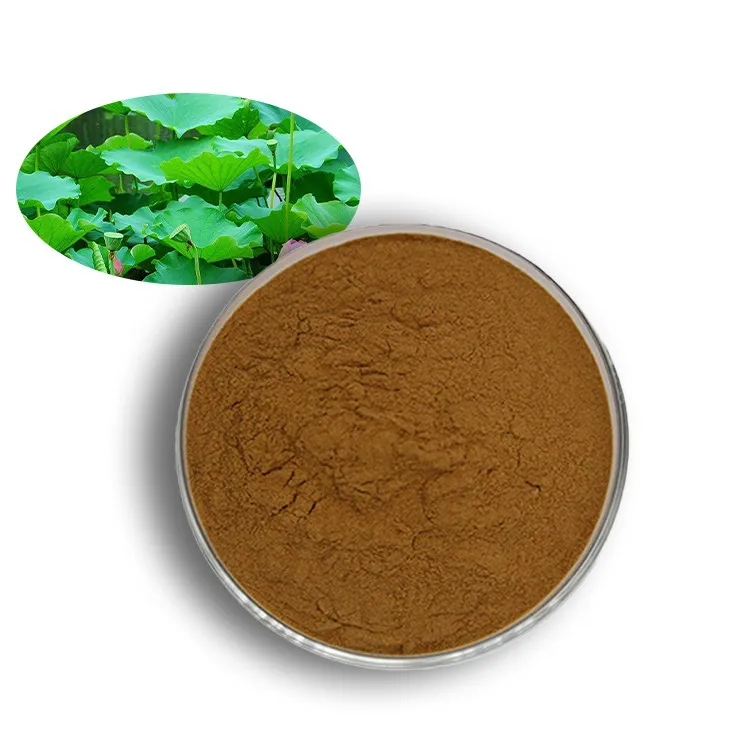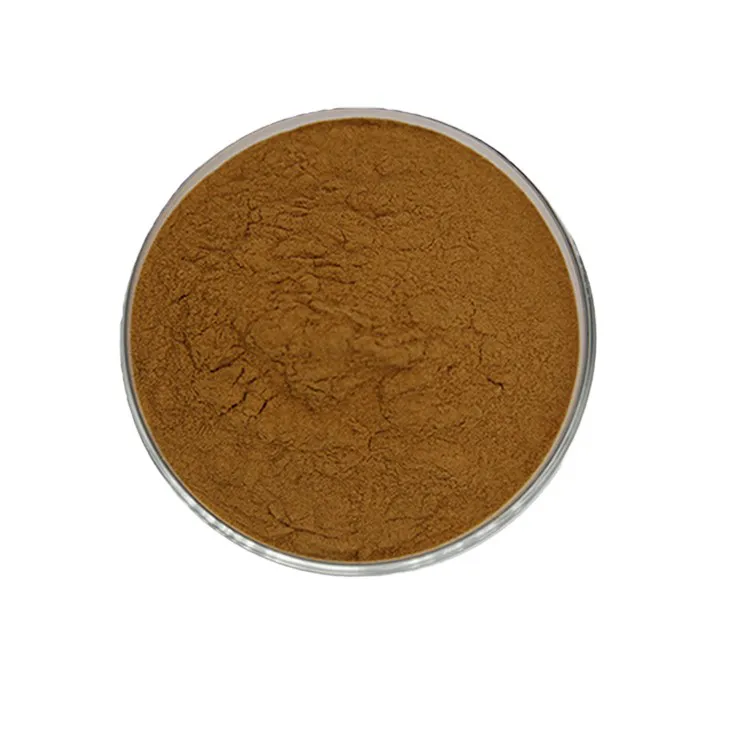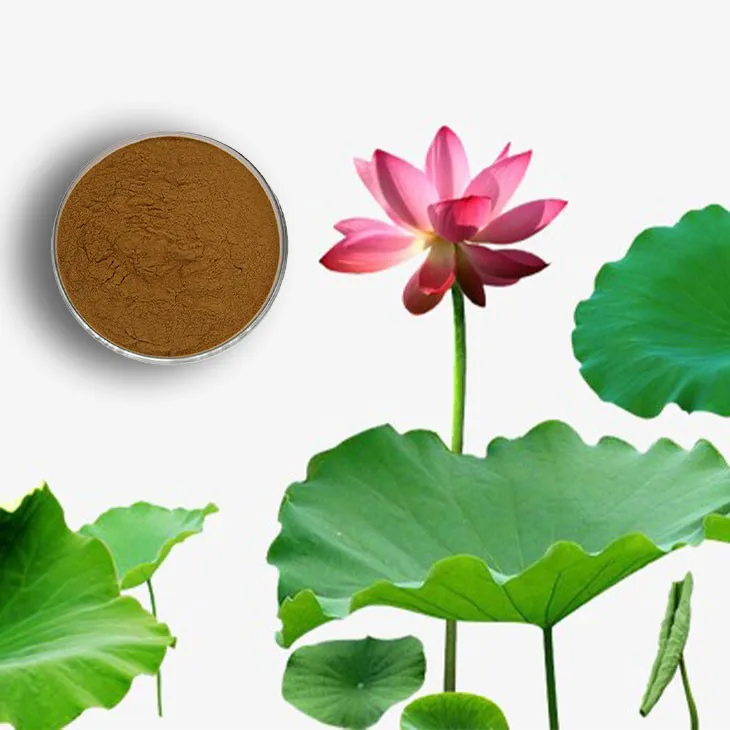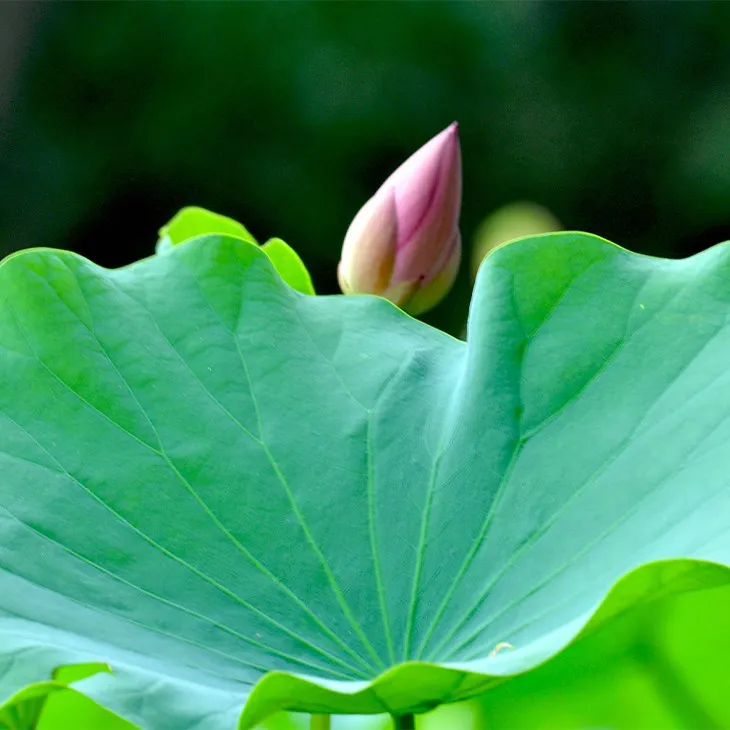- 0086-571-85302990
- sales@greenskybio.com
The best organic lotus leaf extract.
2024-12-01

Introduction
Organic Lotus leaf extract has been gaining significant attention in recent years due to its numerous beneficial properties. The lotus plant, a symbol of purity and beauty in many cultures, has been used in traditional medicine for centuries. The extract from its leaves, when obtained organically, is a rich source of various bioactive compounds that offer a wide range of applications in different industries.

Composition and Nutritional Value
1. Flavonoids
- Flavonoids are one of the major components in organic Lotus leaf extract. These compounds are known for their antioxidant properties. They scavenge free radicals in the body, which are unstable molecules that can cause damage to cells and contribute to various diseases such as cancer, heart disease, and aging - related disorders.
- Some of the specific flavonoids present in Lotus leaf extract, like Quercetin and kaempferol, have been studied extensively for their anti - inflammatory effects. They can help reduce inflammation in the body, which is often associated with chronic diseases.
2. Alkaloids
- Alkaloids in lotus leaf extract also play a crucial role. They contribute to the extract's anti - microbial capabilities. These substances can inhibit the growth of various microorganisms, including bacteria, fungi, and viruses.
- For example, certain alkaloids may be effective against common pathogenic bacteria such as Escherichia coli and Staphylococcus aureus, which are responsible for many infections in the human body.

Antioxidant and Anti - microbial Properties
1. Antioxidant Function
- The antioxidant properties of organic lotus leaf extract are of great significance. By neutralizing free radicals, it helps protect the body's cells from oxidative damage. Oxidative stress occurs when there is an imbalance between the production of free radicals and the body's ability to detoxify them or repair the resulting damage.
- Regular consumption or use of products containing lotus leaf extract may potentially reduce the risk of developing oxidative stress - related diseases, such as neurodegenerative diseases (e.g., Alzheimer's and Parkinson's) and cardiovascular diseases.
2. Anti - microbial Activity
- In terms of anti - microbial activity, the extract can be used as a natural preservative in various products. For instance, in the food industry, it can help prevent the growth of spoilage - causing microorganisms, thereby extending the shelf life of food products.
- In the pharmaceutical and cosmetic industries, its anti - microbial properties are valuable for preventing the growth of harmful bacteria and fungi on the skin or in products. This helps in maintaining the safety and quality of these products.

Applications in the Beauty Industry
1. Astringent Qualities
- The astringent properties of organic lotus leaf extract make it a popular ingredient in skincare products. It can tighten pores, giving the skin a smoother and more refined appearance.
- When applied topically, it helps to reduce excess oil on the skin, which is beneficial for those with oily or combination skin types. This can also contribute to a reduction in acne breakouts as it helps to keep the pores clean.
2. Skin Texture Improvement
- Regular use of products containing lotus leaf extract can improve skin texture. It stimulates the production of collagen, a protein that is essential for maintaining the elasticity and firmness of the skin.
- It also helps in exfoliating the skin gently, removing dead skin cells and promoting the renewal of new, healthy skin cells. This results in a more radiant and youthful - looking complexion.

Wellness Benefits: Impact on Digestion
1. Digestive Aid
- Organic lotus leaf extract is believed to have a positive impact on digestion. It can help with issues such as indigestion and bloating. One of the ways it may work is by increasing the secretion of digestive enzymes in the stomach and intestines.
- These enzymes play a crucial role in breaking down food into smaller, more easily absorbable components. By enhancing their secretion, lotus leaf extract can improve the overall digestive process.
2. Gut Health
- It may also contribute to gut health. A healthy gut is essential for overall well - being as it is involved in nutrient absorption, immune function, and even mental health. Lotus leaf extract may help maintain a balanced gut microbiota by inhibiting the growth of harmful bacteria and promoting the growth of beneficial ones.
- Some studies suggest that it can have a prebiotic - like effect, providing nourishment for the beneficial bacteria in the gut, which in turn can improve digestive function and overall health.
Methods of Extraction
1. Solvent Extraction
- One common method of extracting lotus leaf extract is solvent extraction. In this process, a suitable solvent such as ethanol or water is used. Ethanol is often preferred as it can effectively dissolve the bioactive compounds in the lotus leaf.
- The lotus leaves are first dried and then ground into a fine powder. The powder is then mixed with the solvent and allowed to soak for a certain period. After that, the mixture is filtered to obtain the extract, which is then concentrated to remove the solvent.
2. Supercritical Fluid Extraction
- Supercritical fluid extraction is another method that is gaining popularity. This method uses supercritical carbon dioxide as the extraction solvent. Supercritical carbon dioxide has the properties of both a gas and a liquid, which makes it an excellent solvent for extracting bioactive compounds.
- It offers several advantages over traditional solvent extraction methods. For example, it is more environmentally friendly as it does not leave behind any solvent residues in the extract. It also allows for more selective extraction of the desired compounds, resulting in a higher - quality extract.
Quality Control and Standardization
1. Quality Assurance in Organic Sourcing
- When it comes to organic lotus leaf extract, quality control starts from the source. The lotus plants should be grown in an organic environment, free from pesticides, fertilizers, and other synthetic chemicals. Organic certification bodies play an important role in ensuring that the plants are grown according to organic standards.
- Producers need to maintain proper documentation of the organic farming practices, including the source of seeds, soil quality, and pest control methods. This helps in ensuring the authenticity and quality of the lotus leaf extract.
2. Standardization of Extract Composition
- Standardization of the extract composition is also crucial. This involves determining the exact amounts of the bioactive compounds such as flavonoids and alkaloids in the extract. Analytical techniques such as high - performance liquid chromatography (HPLC) are used to measure the levels of these compounds.
- By standardizing the extract composition, producers can ensure the consistency of the product's quality and its effectiveness. This is especially important for products used in the pharmaceutical and nutraceutical industries.
Future Prospects
1. Research and Development
- There is still much to be explored regarding organic lotus leaf extract. Future research could focus on uncovering new bioactive compounds in the extract and understanding their potential health benefits more comprehensively.
- Studies could also be conducted to optimize the extraction methods to obtain a more potent and pure extract. This could lead to the development of new products in the pharmaceutical, cosmetic, and food industries.
2. Market Expansion
- As awareness about the benefits of organic products and natural remedies increases, the market for organic lotus leaf extract is expected to expand. There is a growing demand for natural ingredients in various industries, and lotus leaf extract has the potential to meet this demand.
- It could be incorporated into a wider range of products, such as functional foods, dietary supplements, and high - end skincare products. This would not only benefit consumers but also contribute to the growth of the related industries.
FAQ:
What are the main components in organic lotus leaf extract?
The main components in organic lotus leaf extract are flavonoids and alkaloids. These components contribute to its antioxidant and anti - microbial capabilities.
How does organic lotus leaf extract protect the body?
Organic lotus leaf extract protects the body through its antioxidant and anti - microbial properties. The flavonoids and alkaloids in it can protect the body from oxidative stress and harmful microorganisms.
What are the applications of organic lotus leaf extract in the beauty industry?
In the beauty industry, organic lotus leaf extract is used in skincare products for its astringent qualities. It can tighten pores and improve skin texture.
How does organic lotus leaf extract affect digestion?
From a wellness perspective, organic lotus leaf extract is believed to have a positive impact on digestion. It may potentially help with issues like indigestion and bloating.
Why is organic lotus leaf extract considered superior?
Organic lotus leaf extract is considered superior because of its multiple beneficial properties. It has antioxidant, anti - microbial, astringent qualities and can also have a positive impact on digestion.
Related literature
- The Benefits of Organic Lotus Leaf Extract in Skincare"
- "Organic Lotus Leaf Extract: A Natural Antioxidant"
- "The Role of Organic Lotus Leaf Extract in Digestive Health"
- ▶ Hesperidin
- ▶ citrus bioflavonoids
- ▶ plant extract
- ▶ lycopene
- ▶ Diosmin
- ▶ Grape seed extract
- ▶ Sea buckthorn Juice Powder
- ▶ Beetroot powder
- ▶ Hops Extract
- ▶ Artichoke Extract
- ▶ Reishi mushroom extract
- ▶ Astaxanthin
- ▶ Green Tea Extract
- ▶ Curcumin Extract
- ▶ Horse Chestnut Extract
- ▶ Other Problems
- ▶ Boswellia Serrata Extract
- ▶ Resveratrol Extract
- ▶ Marigold Extract
- ▶ Grape Leaf Extract
- ▶ blog3
- ▶ blog4
-
The best lemon juice powder in nature.
2024-12-01
-
Organic Vitamin K2 Powder Suppliers
2024-12-01
-
Bulk purchase of L - tyrosine.
2024-12-01
-
Vitamin K2 Manufacturers
2024-12-01
-
100% Pure Natural Rutin.
2024-12-01
-
Chinese Citrus Bioflavonoid Suppliers.
2024-12-01
-
Dan Shen Root Extract/Salvia Root Extract
2024-12-01
-
Almond Extract Powder
2024-12-01
-
Propolis Extract Powder
2024-12-01
-
Shikonin
2024-12-01
-
Sea buckthorn Juice Powder
2024-12-01
-
Moringa powder
2024-12-01
-
Lotus leaf extract
2024-12-01
-
Mulberry Extract
2024-12-01
-
Alfalfa Meal
2024-12-01
-
White Peony Extract
2024-12-01




















